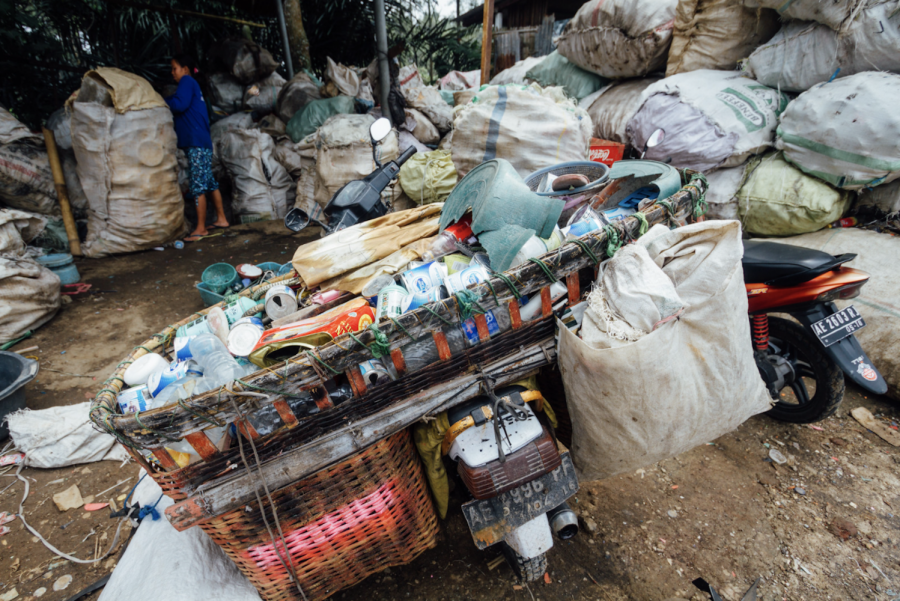Motorcycle Loaded with Recyclables, Java Indonesia / Adam Cohn / Flickr / CC BY-NC-ND 2.0
Trash pickers carry recyclable materials of value in a cart attached to a motorcycle.
Rising landfills in Indonesia
Two hundred acres.
Over 150 football fields.
Engulfing the entire area are heaping mounds of unrecycled waste. These mounds sit in Bantar Gebang, a landfill just south of Jakarta.
Jakarta is Indonesia’s bustling capital city, where modern buildings tower over busy sidewalks. The city’s 11 million residents roam these sidewalks and this tremendous population results in a corresponding abundance of waste. However, like many other developing countries, Indonesia does not have the systems in place to effectively manage this waste.
“In Indonesia, we don’t have a common segregation system like those that are implemented in more advanced countries,” said Muharram Atha Rasyadi, an urban campaigner for Greenpeace Indonesia who focuses on single-use plastic issues. “Here, you have to collect and transport your segregated waste by yourself, but this isn’t the common practice.”
With segregation eliminated from the list of the components that make up the recycling system, recyclable material ends up in either Bantar Gebang or another landfill. The next recycling phase falls into the hands of the 2 million Indonesian waste pickers or “Pemulung.”
Pemulung collect various recyclable materials such as plastic, metal, and cardboard. The workers then sell the material to recycling industries who complete the process. While waste picking is a source of income, it is not the ultimate solution. In addition, this income is not bountiful since Pelumung usually earn Rp 10,000, or $0.70 per day.
While Pelumung play a significant role in the recycling process, Indonesian environmental organizations recognize that they cannot depend upon the workers to solve the issues surrounding plastic waste.
“It’s a challenging situation,” Rasyadi said. “Greenpeace and other organizations want to educate people, but at the same time, we want to push the government and industries to make a commitment.”
Despite this challenge, many environmentally-passionate Indonesians like Rasyadi are willing to go to great lengths to protect their environment.
“Environmental issues are the most urgent problems that need to be solved in Indonesia,” Rasyadi said.

